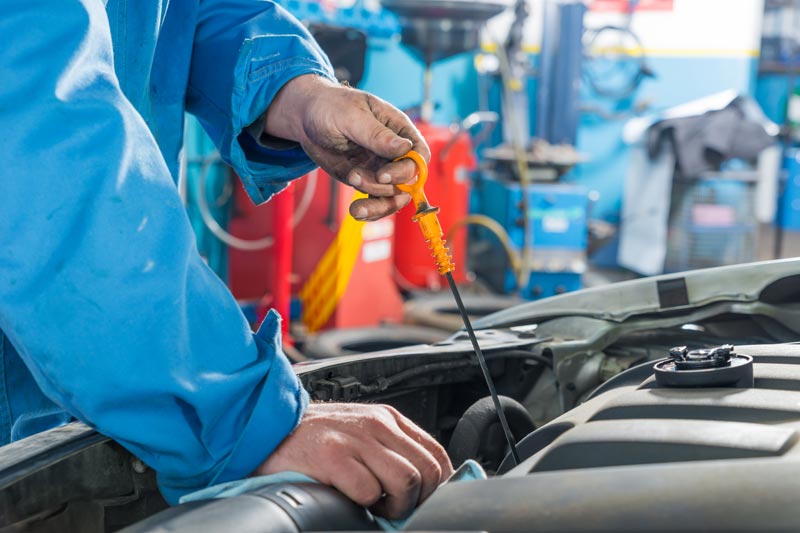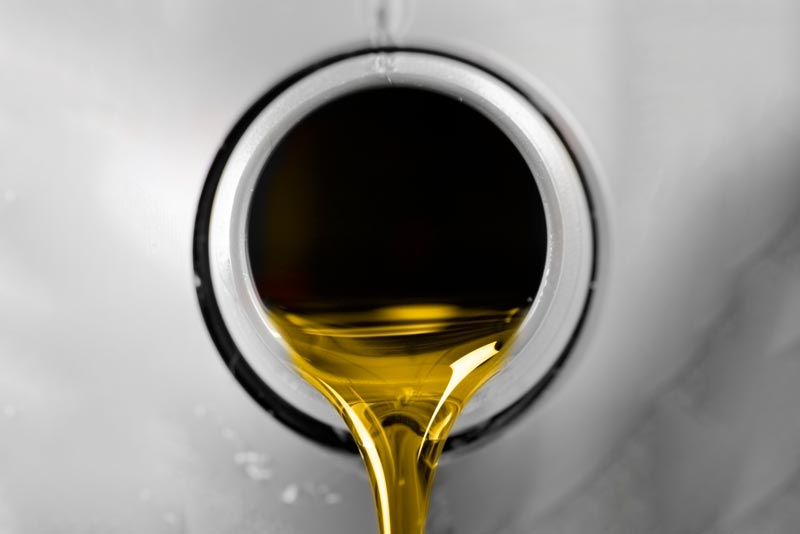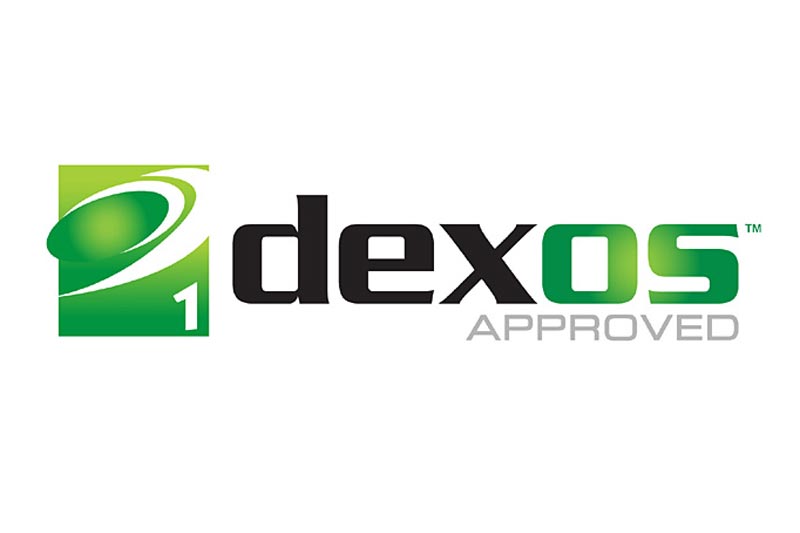
GM targets 2027 for the release of dexos1 Gen 4 oil
General Motors (GM) published its most recent engine oil specification for gasoline-powered vehicles in March 2021. dexos1 Gen 3 is one of the most rigorous specifications in the industry and reinforces the company’s commitment to improving fuel economy and reducing emissions. It has been described by certain industry insiders as “essentially GF-6A but with some harsher limits.” The U.S. automaker began recommending dexos1 Gen 3 for use in its vehicles in September 2021.
Dexos1 Gen 3 includes tests from GF-6, the latest ILSAC engine oil performance standard, but also incorporates elements of the European Automobile Manufacturers’ Association (ACEA) standards, alongside GM’s unique requirements.

Improved friction and wear to enable fuel savings and longer engine life, better protection in cold weather and cleaner engine operation are key attributes of dexos1 Gen 3 oil. The specification includes a new GM Overall Equipment Effectiveness (OEE) test that utilises the Worldwide Harmonized Light Vehicles Test Cycle (WLTC) to determine emissions and fuel consumption. It incorporates an update to stochastic pre-ignition (SPI) with a new transient test cycle and the introduction of a second fuel type. Gen 3 features tighter limits than dexos1 Gen 2 oils for oxidation and turbo coking, and on the API tests – Sequence VH and Sequence VIII. The backwards compatible GM specification also includes lower sulphated ash limits.
GM, the largest U.S. automaker, is committed to improving fuel economy and reducing emissions. GM has used the dexos specification since 2010 to ensure the highest quality engine oils and enhanced engine performance. The original specification, dexos1 Gen 1, was designed for oils used in gasoline-powered vehicles, providing protection beyond the ILSAC GF-5 and API SN industry standards. Dexos1 Gen 1 expired in 2017. Its successor, dexos1 Gen 2 was introduced in 2015.
Not to be confused with dexos1 Gen 2, dexos2 are lower SAPS (sulphated ash, phosphorus and sulfur) engine oils for use in high-performance gasoline and light-duty diesel engines where advanced aftertreatment systems such as diesel particulate filters (DPFs) are used. Despite some similarities with Gen 2, dexos2 is not considered a direct update of dexos1. The specification is relevant in European regions and oils are typically high HTHS (high temperature high shear), ≥ 3.5cP, with viscosity grades of SAE 5W-30 or SAE 5W-40, and formulated with API Group III base oils.

Published in April 2018, dexos D is a GM engineered oil designed for light diesel engines that meets the requirements of API SN and ACEA C5. The oil has application in modern diesel engines (from Manufacturer Year 2020) that require SAE 0W-20 and was introduced by GM due to the increasing prevalence of smaller and lighter engines.
With a global push to reduce automotive emissions and the increasing prevalence of electric vehicles (EV), many industry stakeholders have been curious about what’s next for GM’s dexos lubricants.
Nathan Siebert, engineering manager fluids and lubricants at GM, provided insight into The Future of GM Fluid Specifications at The Detroit Advisory Panel’s 41st Biennial Automotive/Petroleum Industry Forum in Dearborn, Michigan, U.S.A., in April. Siebert, who has worked at GM for 23 years in a variety of engineering and manufacturing roles, included an update on the phase-out of existing dexos specifications and the development of new GM standards. He holds a Masters in Manufacturing Operations from Kettering University in Flint, Michigan.
Siebert has previously revealed that the trajectory of dexos1 Gen 3 licenses is consistent with that of Gen 2. At ILMA Engage earlier in April, he summarised 51 core formulation approvals, 70 blenders licenses and 183 brand licenses in the seven months since the oil specification became available. Of 169 samples taken during auditing, only three applications were rejected.
During the Detroit Advisory Panel meeting, Siebert provided key dates on the phase-out of dexos1 Gen 2. After September 1, 2022, all products produced and certified to the dexos1 standard must be Gen 3. The company has granted an additional 12 months for the sell-down of Gen 2 products, with August 31, 2023, announced as the end date. Siebert also signposted that dexos2 products will need to be converted to dexos D in 2024. Concerning labelling, Siebert noted that a Gen 3 product is only allowed in Gen 2 bottles with the prior approval of GM and new license numbers are mandatory on the bottle for auditing purposes.

Despite Gen 3 being less than 12 months old and uncertainty around the future of the internal combustion engine (ICE), GM has already started development on the next iteration of engine oil standards, dexos1 Gen 4. GM has previously announced plans to offer EVs exclusively by 2035, ending the production of its cars, trucks and SUVs with diesel- and gasoline-powered engines.
Siebert indicated that GM is targeting 2027 for Gen 4, adopting a similar time frame to other notable lubricant industry specifications. The next heavy-duty diesel engine oil category “PC-12” is slated for 2027 and will replace the current API CK-4 and API FA-4 categories. PC-12 will provide fuel economy improvements and new wear tests. There are also suggestions that a more global specification will be developed between the American Petroleum Institute (API) and ACEA. GF-7 is also targeting 2027, with early indications the ILSAC standard will focus on fuel economy, wear, improved stochastic pre-ignition and turbo protection.
Gen 4 performance will centre around improved fuel economy with a new GM OEE test and improved wear performance. Siebert indicated that the U.S. automaker is also investigating the impact of gasoline particulate filters. A new test will improve SPI protection, and a new GM Oxidation and Deposit test (GMOD) will assess the oil’s resistance to oxidation during high-temperature operation. Gen 4 will also feature a heightened focus on aeration and turbo-coking and lower sulphated ash limits. Siebert said that the standard will also consider other updates to emissions requirements.
Siebert’s presentation emphasised that GM has a clear vision on how it wishes to position itself as a platform for innovation in EV hardware and software solutions—that reaches far beyond automotive applications—from the “aerospace industry to aftermarket.” Siebert also highlighted efforts to develop proprietary technology for EVs.
While no details on timings were forthcoming, Siebert outlined efforts in developing EV drive unit fluids that will focus on efficiency improvements, thermal and electrical conductivity, copper corrosion, wear improvements, extended fluid life and aeration/foaming. The development of cooling solutions for EV batteries for fluid thermal conductivity, controlling thermal propagation, and off-gassing of by-products were also described. Siebert emphasised the need for new coolant technology and grease technologies for fuel cell vehicles without providing further detail on GM development in this area.







